Can Journaling Actually Improve Your Mental Health? What The Science Says
"Hearst Magazines and Yahoo may earn commission or revenue on some items through these links."
If you kept a diary when you were younger, chances are, it was full of info about your top-secret crushes and adolescent angst. As it turns out, adults can enjoy the benefits of journaling, too—and research shows that writing may even have mind-boosting benefits. Enter: journaling for mental health—a simple, yet meaningful practice that may help you manage stress, anxiety, and depression.
“Journaling can be a powerful way to organize your thoughts, feelings, and ideas, leading to increased self-awareness, self-discovery, and growth,” says Jaci Witmer Lopez, PsyD, a licensed clinical psychologist based in New York City. “In my practice, I've seen firsthand how regular journaling can transform lives.”
Maybe you've kept a fitness journal in the past to help you stay on track toward your wellness goals, or you currently have a gratitude journal to stay grounded. There are travel journals to help you document your adventures, and if you’re less artistically inclined, there are even journaling apps to help you stay mindful on the go. Below, experts share the benefits of journaling for mental health, how to start one yourself, and specific writing prompts for inspiration.
Meet the experts: Jaci Witmer Lopez, PsyD, is a clinical psychologist based in New York City. Marc Campbell, LMHC, is a licensed therapist based in Orlando, Florida, and the author of I Love My Queer Kid.
Common Benefits Of Journaling
Apart from having a dedicated place for juicy diary entries, there are several general benefits of journaling. The practice has been shown to help people process stressful events, according to a study published in Annals of Behavioral Medicine. In another study about college students, researchers found that journaling may improve self-efficacy—in other words, it can help you believe in yourself. Writing has even been studied as a behavioral intervention for children—so if you have kiddos at home, encouraging them to write may not be such a bad idea.
Common benefits of journaling include:
Finding inspiration
Creative expression
Tracking your goals
Fun freewriting
General reflection
Brainstorming ideas
5 Mental Health Benefits Of Journaling
Apart from its general benefits, here's how journaling can impact your mental health, specifically, according to experts.
1. It can help you process (and learn from) your emotions.
“Remembering the events from your day—both the ups and the downs—can help your brain practice processing and regulating your emotions,” says Marc Campbell, LMHC, a licensed therapist based in Orlando, Florida. For instance, if you’re feeling rejected from a recent breakup or you're burned out at work, writing about how you feel and reading it back to yourself can help you process the difficult emotions. Journaling can also help you recognize certain patterns, practice more acceptance, and have more empathy for yourself, Campbell says.
2. It can help you heal from traumatic events.
Journaling can significantly impact your ability to process and heal from trauma, Lopez says. “Research has shown that writing can reduce symptoms of depression, anxiety, and post-traumatic stress disorder (PTSD),” she says. “When you write things down as opposed to just thinking about them, you hold yourself accountable to reframing or changing your narrative.” Although the mental health effects of trauma won’t disappear by simply writing down how you feel, journaling can be a helpful practice in addition to seeking therapy and trauma treatment.
3. It may help you manage anxiety and depression.
Anxiety and depression are among the most commonly cited mental health struggles in America, per the American Psychological Association (APA). And although having a writing practice won't cure these conditions overnight, journaling may have the potential to decrease depression and anxiety and improve resilience over time, according to a recent study. Plus, if you’re struggling to find meaning in everyday life or you feel generally disengaged—both of which are common experiences when facing mental health challenges—some studies suggest that journaling may help.
4. It can help you track your therapy progress.
If you're seeing a therapist right now, journaling can help you check in with yourself daily or weekly about how it’s going—or even help you hold yourself accountable for certain behaviors you’d like to change, Campbell says. “Through the process of journaling, you can reflect on past entries and potentially learn about any patterns you have,” he says.
You can also use a journal to reflect on what, exactly you speak about during your therapy sessions and begin to process how you’re feeling about it, Lopez adds. An added benefit? One day, you can look back at your journal and celebrate how far you've come.
5. It can help you practice self-compassion.
Whether you're dealing with a specific mental health issue or you're simply feeling overwhelmed, negative self-talk, shame, and embarrassment are common. It can be difficult to be kind to yourself, however, practicing self-compassion can go a long way, experts say. A recent study in the American Journal of Speech-Language Pathology found that daily journaling as a mindfulness practice led to increased levels of self-compassion, and another study on registered nurses found that journaling can boost compassion and help manage burnout.
How To Start Journaling For Mental Health
If you aren't someone who spilled your heart out in a childhood diary, don't worry—journaling can be as simple as jotting things down on your phone, in a notebook, or responding to a specific prompt to get inspiration (more on that soon).
There’s no “right” or “wrong” way to journal, but it should be a personal process, Campbell says. “I recommend starting journaling in the way that feels most authentic to you. If you prefer pen and paper, start with that. If you prefer typing things out in your notes app, that works, too. If you aren’t sure, try both and more—a laptop or even typewriter if you’re feeling adventurous,” he says. Also, writing for mental health is personal, but you shouldn't feel pressured to document your whole life story all at once (unless you want to).
Whether you incorporate journaling into your morning routine or you attempt five minutes before bedtime to free-write, experts recommend starting slow. “If you're new to journaling, my advice is to start small and be patient with yourself. Set aside just a few minutes a day to begin with, and gradually increase the time as you build the habit. It’s important to find a method that you'll stick with consistently," Lopez says. Try to pace yourself and make the practice as manageable as possible so that it becomes a habit formed over time, she adds.
10 Journal Prompts For Mental Health
What was the highlight of my day?
What was a lot moment of my day?
What's a challenge I'm facing right now?
What people, places, or things am I grateful for and why?
Who is someone that's inspired me lately and why?
What are three things I'm proud of myself for, and why?
What is a small act of kindness I can do for myself this week?
What is one limiting belief I have about myself? (And is there a way I can begin to reframe it)?
Describe something you are struggling with. Then, read it from the perspective of someone you care about. What would they have to say about it?
If I could change an aspect of my mental health and well-being right now, what would it be and why?
When it comes to journaling for mental health, consistency is key. Whatever method, prompt, or format you choose, your mental health will thank you.
Best Journals For Mental Health
The Five Minute Journal
Looking for a simple, sleek journal that will help you practice more mindfulness and gratitude? This popular option might be a good fit for you. It encourages you to cultivate a sense of calm for just five minutes a day, but there are plenty of helpful tools packed into the journal itself—like prompts, daily highlights, weekly challenges, affirmations, and more. If you're brand new to journaling for mental health, this one provides clear cues and outlines to help you self-reflect and feel more confident. Plus, it's aesthetically pleasing. What could be better?

The Five Minute Journal
Amazon
$28.99
Intelligent ChangeThe Big Feelings Survival Guide
This colorful, activity-filled workbook by licensed art therapist Alyse Ruriani, LPC, is a great option if you're ready to dive into mental health in a fun, accessible, yet meaningful way. The workbook includes practical and creative activities that are all rooted in dialectical behavior therapy (DBT), which, ICYMI, is a revolutionary treatment that helps people move through emotions. Not only will you gain major insight about your mental health journey, but the workbook itself is super bright and engaging—the helpful illustrations and eye-opening exercises are sure to help you reflect and gain inspiration.
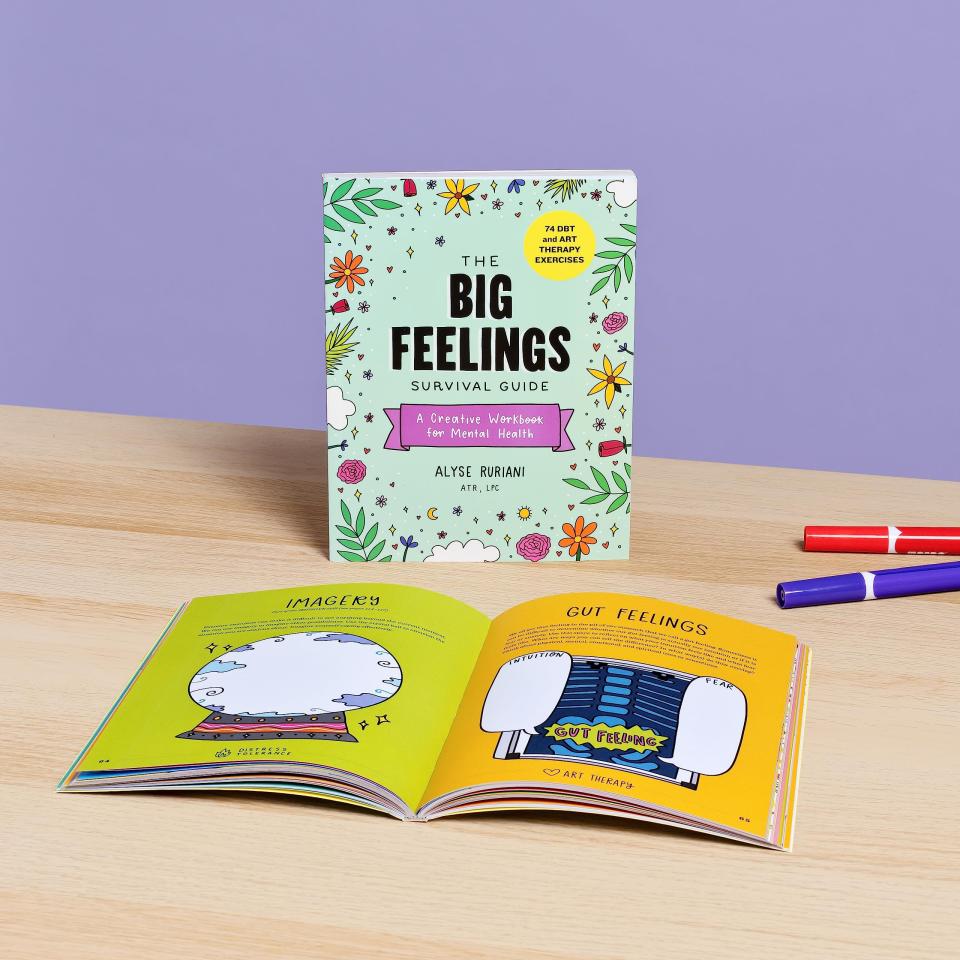
The Big Feelings Survival Guide
Amazon
$14.39
Alyse RurianiThe Inner Work Journal
If you're looking for a journal that will help with personal growth and self-discovery and give you tons of guidance, this option from Simple Self is one to consider. The journal provides structure and support for your mental health journey, including tools like a holistic health self-assessment, daily and weekly writing prompts, and even practical worksheets to help you keep track of your mental health goals. The prompts can help with mindfulness, stress management, inner child work, and more, making it a solid option for anyone who is ready for long-term change.
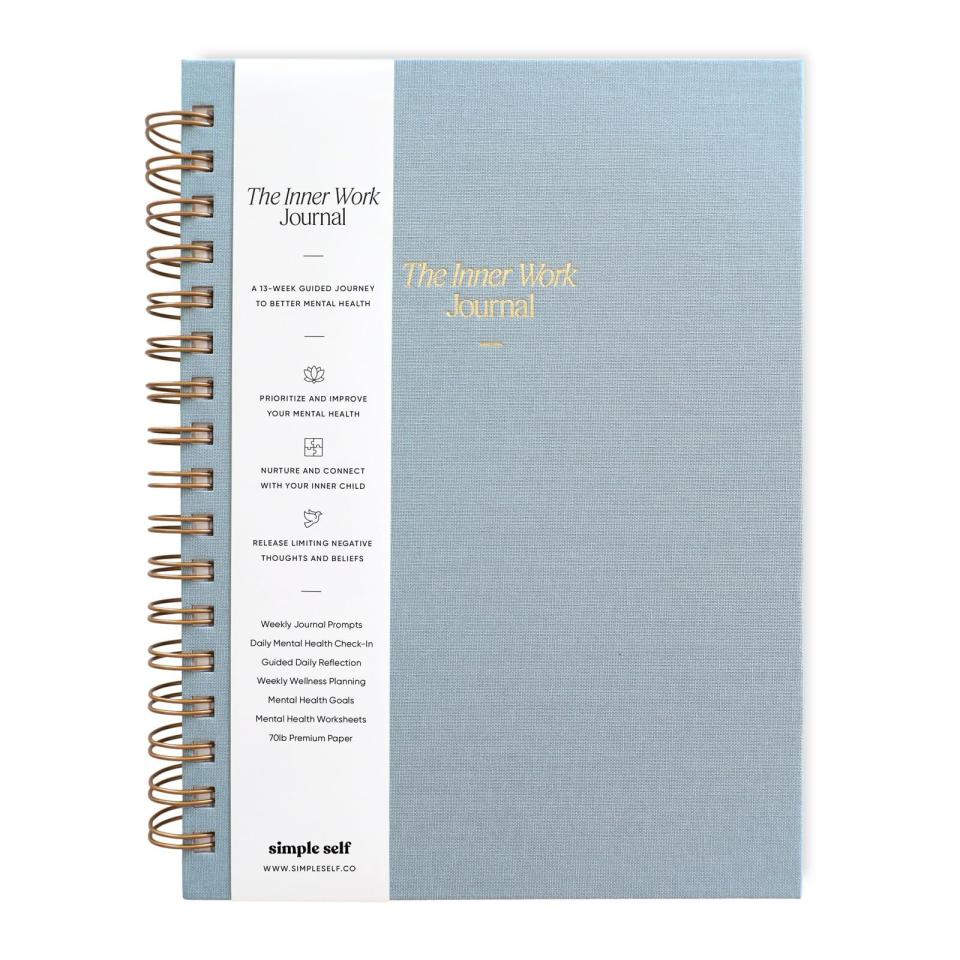
The Inner Work Journal
Amazon
$39.99
Amazon52-Week Mental Health Journal
The 52-Week Mental Health Journal by therapist Cynthia Catchings, LCSW, has a featured prompt for every day of the year to help you stay on track. It claims to help you with different "pillars" of good mental health—calm and resiliency, connection and engagement, goals and purpose, and healthy living. The prompts, daily questions, and inspirational quotes in this journal are rooted in evidence-based methods like cognitive behavioral therapy (CBT) and mindfulness. If you want to challenge yourself to a year of better mental health, this is the journal to try.
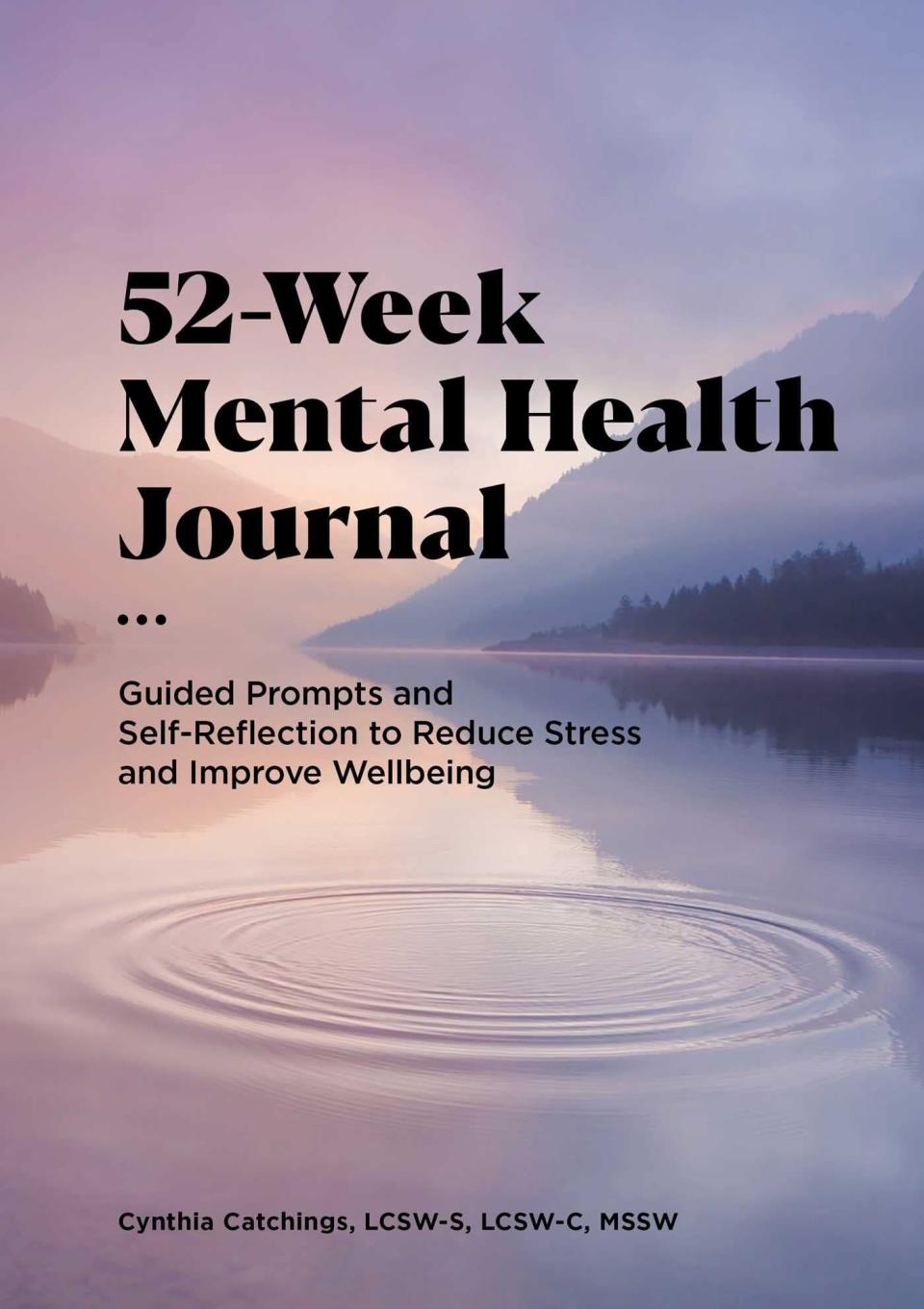
52-Week Mental Health Journal
Amazon
$13.42
AmazonSelf-Love Workbook for Women
This self-love workbook by therapist Megan Logan, LCSW, is uniquely designed to help you release self-doubt and have more self-compassion. The journal includes quizzes, writing prompts, and fun activities to help you cultivate more self-love, like writing a message to your younger self and making a "happy playlist." You'll also find empowering affirmations for those days when your mental health isn't so good—plus, the journal provides helpful resources for goal-tracking, identifying emotions, and embracing who you are.
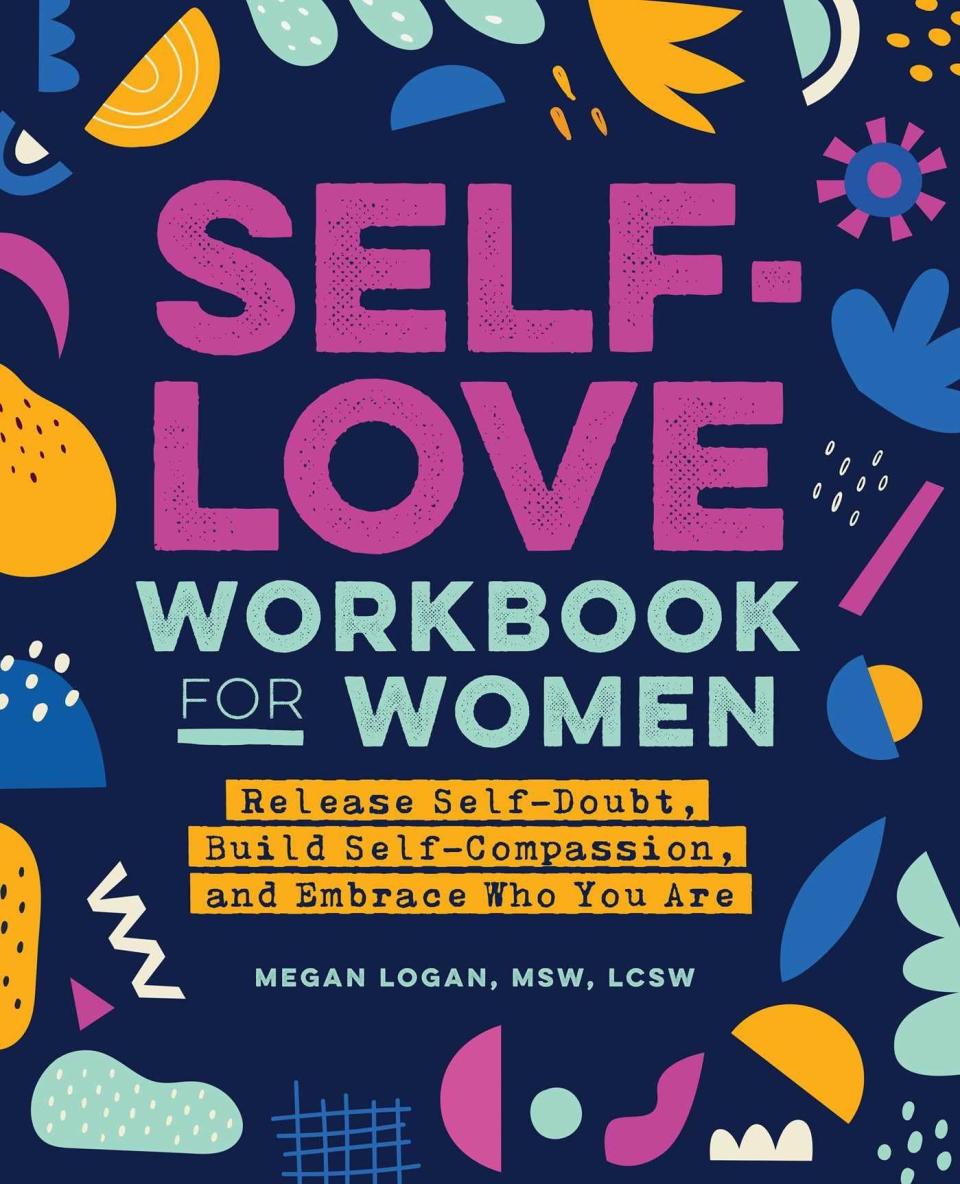
Self-Love Workbook for Women
Amazon
$9.59
90-Day Mental Health Journal
This easy-to-follow journal encourages you to care for your mental health in a holistic way. If you're dealing with stress, anxiety, or uncertainty about the future, the journal claims to help you self-reflect and gain self-awareness while focusing on the power of the present moment. This journal is ideal for anyone who wants to breathe, reconnect with themselves, and cultivate more mindfulness. It comes with grounding activities and daily check-ins to help you keep track of your emotions—and understand their roots.
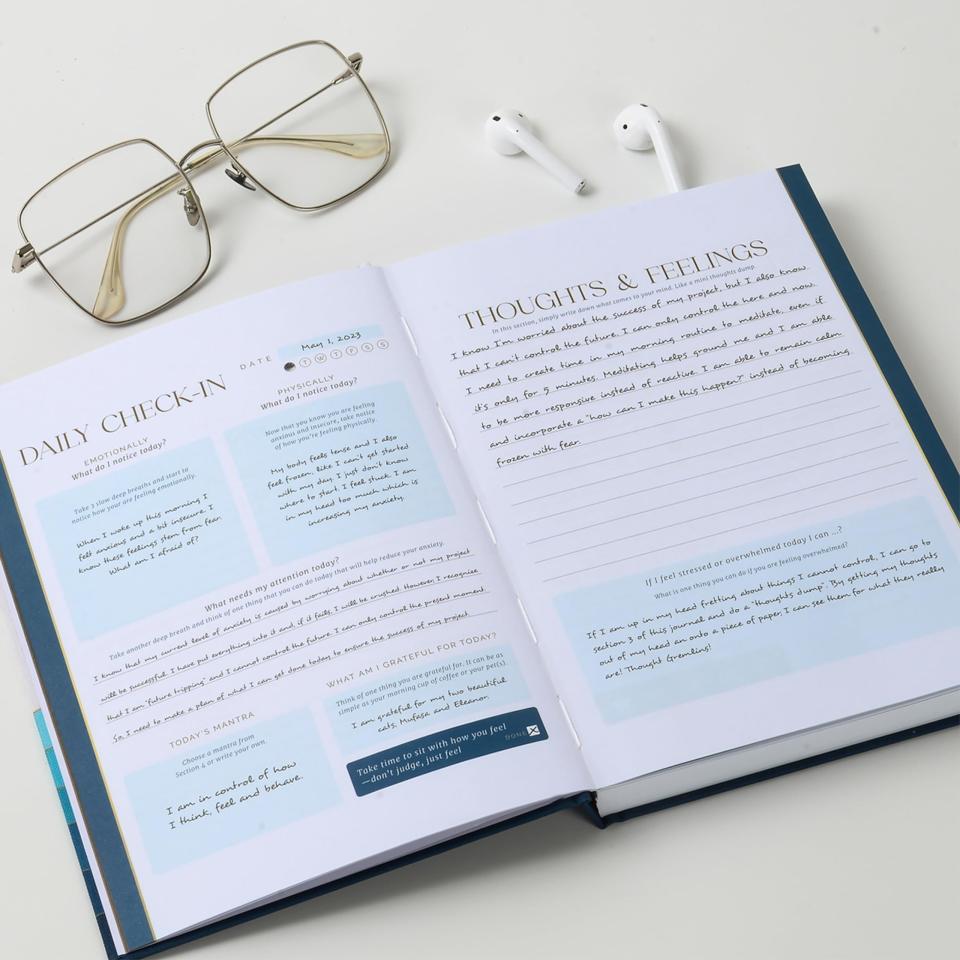
90-Day Mental Health Journal
Amazon
$23.99
AmazonYou Might Also Like

